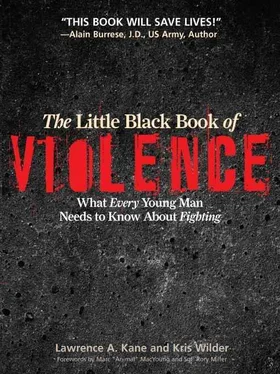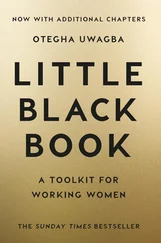The feet began the argument saying, “There can be no doubt that we are the only factors in this successful undertaking. Without us there could have been no setting out on this dangerous venture.”
“Not so,” retorted the hands. “The facility you offered would have been of no avail had our power not been called into requisition. It is the service we rendered that enabled our owner to procure milk from the lioness.”
“Neither of you could have rendered any service,” exclaimed the eyes, “without the sight which we supplied.”
“And yet,” interrupted the heart, “had not I inspired the idea, no steps would have been taken to bring any of your powers into exercise.”
At last the tongue put in his claim, and was utterly ridiculed by the unanimous opinions of all the other contending members of the body. “You,” they scornfully replied, “You who have not the free power of action which is possessed by all and each of us. You who are imprisoned in the narrow space of the human mouth, you dare to put in a claim to have contributed to this success!” In the midst of this contention the man awoke and proceeded on his journey home.
When he was brought before the king with the much desired milk, the man, by a slip of the tongue said, “Here I have brought your Majesty the dog’s milk you asked for.” The king was incensed by this insulting remark. In a rage he ordered that the man to be put to death for his insolence.
On the man’s way to execution, all the members of his body, heart, eyes, feet, and hands trembled and were terribly afraid. “Did I not tell you,” said the tongue, “that my power is above all the united strengths you possess? And you ridiculed me for my trouble. What think you of my power now? Are you now prepared to acknowledge my supremacy?”
When all the members of the body consented to the tongue’s proposition, the tongue requested and obtained a short reprieve, so that it could make a last appeal for the king’s clemency.
When the man was brought to the king his tongue began speaking with great eloquence. “Is this the reward great and just king, to be meted out to the only one of your majesty’s servants who was glad of the opportunity to offer his life to fulfill his king’s desire, who gladly carried his life in his hand to obtain for his august master what scarcely ever was obtained by mortal man?”
“That may be true,” replied the king, “yet your own statement was that you brought me dog’s milk instead of the lioness’ milk which you undertook to procure.”
“Not so, O gracious king,” replied the tongue, “I brought the identical milk that your majesty required. It was merely by an unfortunate mistake in my speech that I changed the name. In fact there is a similarity, as the word 


 in Hebrew may mean either lioness or dog. My words will be verified if your majesty will condescend to make use of the milk I procured, for it will effect the cure your majesty desires.”
in Hebrew may mean either lioness or dog. My words will be verified if your majesty will condescend to make use of the milk I procured, for it will effect the cure your majesty desires.”
The milk was submitted to the test, and was found to be that of a lioness; and so the body of the man was saved and the tongue triumphantly demonstrated its great power for good or for evil.
While that fanciful tale serves to make a point, it actually has quite a lot to do with real life. Consider this incident reported in the news.
On January 27, 2005, actress Nicole duFresne was robbed at gunpoint by 19-year-old Rudy Fleming who stole her friend’s purse and pistol-whipped her fiancé. What was supposed to be a simple property crime turned deadly, however, when the 28-year-old actress confronted the teenaged robber. She became furious, shoved Fleming, and snapped, “What are you going to do, shoot us?” A fatal mistake—she died shortly thereafter in her fiancé’s arms.
This tragedy is an excellent case study in what not to do when confronted by an armed aggressor. Experts often state that robbery is more often about power than anything else. Discussing the duFresne shooting, Alfonso Lenhardt of the National Crime Prevention Council said, “It’s a tragedy, but in this case it sounds like the suspect felt he wasn’t getting the respect he was due. When a gun is in the hands of a desperate person with low self-esteem, they’re going to react that way.”
Respect is paramount for gang members too, even wannabes. Mouthing off to any street punk is downright dangerous. If you are similarly confronted by an adversary, save your righteous indignation for a safer environment after the immediate danger has passed. It does you no good to be right yet dead like duFresne. Having to be right despite the cost, reacting indignantly in the face of a threat, or insulting an adversary frequently guarantees that a conflict will escalate out of control.
If you are in error about something, admit it. Honesty is a much better way to de-escalate a bad situation than lying or stubbornly refusing to acknowledge a wrong. It is tough on the ego, but it sure beats an unnecessary hospital stay, jail time, or a premature trip to the morgue.
Try not to insult or embarrass the other person in any way, particularly in public. We do not like being treated that way, we are pretty sure you do not either, and we strongly suspect that neither will an aggressive person. Giving someone a face-saving way out affords him the opportunity to back down gracefully. Put his back up against the metaphorical wall, on the other hand, and he will ultimately feel forced to lash out at you, striking back (from his perspective) to save his dignity and honor.
While sticks and stones may break your bones, your words can actually kill you. They can also save your life. Having to be right despite the cost, reacting indignantly in the face of a threat, or insulting an adversary often guarantees that a conflict will escalate to violence. Clever words, on the other hand, can de-escalate a tense situation, stave off bloodshed until help arrives, or momentarily distract an opponent to facilitate your counterattack and escape.
Even if you are in the right, it is sometimes prudent to pretend otherwise. Do not let your ego overrule your common sense. Giving your vehicle to a carjacker, your wallet to a robber, or your apology to someone who tries to start a fight hurts a lot less than eating a blade or a bullet because you refused to back down.
Even if you cannot de-escalate a situation simply by talking, clever words may enable you to stall until help arrives or the attacker changes his/her mind and leaves. You can also use conversation as a psychological weapon to increase your chances of surviving as well as to create openings for your physical defenses. Deception, for example, is but one of the tactics you might choose to employ. Any convincing distraction you can create will be to your advantage, such as shouting for nonexistent friends. There is strength in numbers and in making an aggressor believe you are not alone.
If you realize that de-escalation is not working and that you will have no other choice but to fight, it may also be possible to cause your opponent to make a mental twitch, providing a moment of opportunity to counterattack while they mentally shift gears. This twitch is brought about by dissonance between what the person expects and what you actually say or do.
A common example is asking a question, as we saw with the four Ds. While the bad guy is focusing on your words or thinking about an answer, you have a moment in which to run or strike. This may be particularly useful when confronted with multiple assailants. Ask something completely unexpected like, “What time is it?” or something really odd like, “What was Gandhi’s batting average?” Cognitive dissonance is powerful. During the opponent’s momentary confusion, you will have an opportunity to act. Similarly, if you can hit an aggressor while he is talking it takes about half a second for him to switch gears mentally from communicating to fighting.
Читать дальше




 in Hebrew may mean either lioness or dog. My words will be verified if your majesty will condescend to make use of the milk I procured, for it will effect the cure your majesty desires.”
in Hebrew may mean either lioness or dog. My words will be verified if your majesty will condescend to make use of the milk I procured, for it will effect the cure your majesty desires.”









